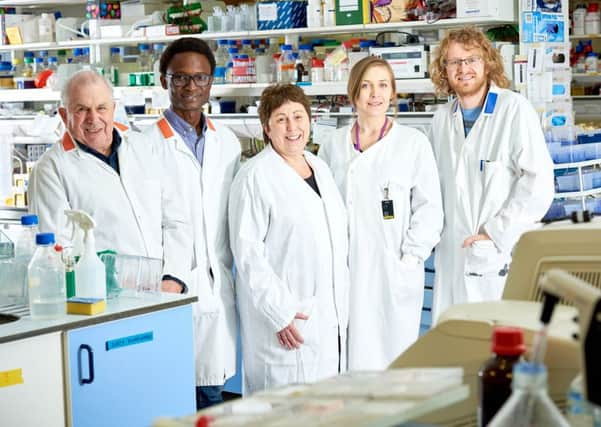Leeds pioneering Polio vaccine work


The pioneering work is featured in the latest MadeAtUni campaign, a celebration of leading research taking place in the UK’s universities.
A spokesman said: “The focus of the campaign is the Nation’s Lifesavers, scientists involved in health research and innovation.
Advertisement
Hide AdAdvertisement
Hide Ad“The traditional approach to making a vaccine is to use a live virus which requires strict biosecurity but very few developing countries have the necessary secure laboratories.”
The research team at Leeds, led by Professor Nicola Stonehouse and Professor Dave Rowlands, are investigating whether a polio vaccine could be manufactured using virus-like particles ‘engineered’ in yeast.
The virus-like particles mimic the live virus but are harmless, doing away with the need for containment facilities.
Batches of polio virus-like particles have been successfully produced in the laboratory and industrial-scale tests are about to start.
Advertisement
Hide AdAdvertisement
Hide AdProfessor Stonehouse said: “There is a real need to increase the production of vaccines and to conduct research into creating new ones, not only for humans but also to protect livestock.”
One of her former PhD students, Dr Oluwapelumi Adeyemi, is hoping the research at Leeds will one day allow him to investigate vaccines for some of the diseases in his home country of Nigeria, including Lassa fever – a category 4 pathogen requiring very strict biosecurity.
The MadeAtUni campaign is run by Universities UK, the umbrella organisation for the sector. It is designed to raise awareness of the groundbreaking research taking place at universities.
Professor Dame Janet Beer, President of Universities UK, said: “Every day, up and down the country, universities are working on innovations to transform and save lives.
Advertisement
Hide AdAdvertisement
Hide Ad“Research taking place in universities is finding solutions to so many of the health and wellbeing issues we care about and the causes that matter.
“By proudly working in partnership with charities, the NHS and healthcare organisations, universities are responsible for some of our biggest health breakthroughs and in revolutionising the delivery of care.“
The University of Leeds is one of the largest higher education institutions in the UK, with more than 38,000 students from more than 150 different countries, and a member of the Russell Group of research-intensive universities. It is consistently outstanding.